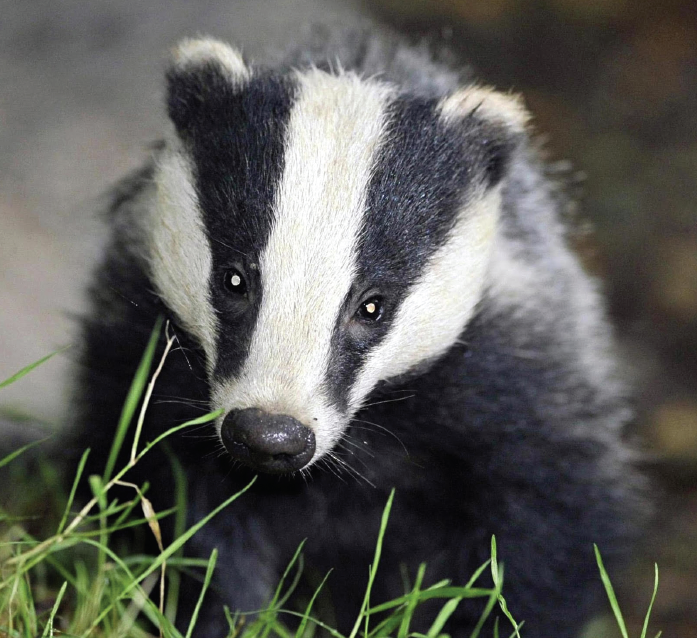
A MOTION to lobby the Welsh Government to introduce a badger cull was passed by Carmarthenshire County Council on Wednesday (Feb 11) in spite of fifteen councillors who declared an interest being unable to vote.
The motion, put forward by Councillor Gareth Thomas, was eventually passed 21-16, with six abstaining.
Introducing the motion, Cllr Thomas, who was granted an exemption permitting him to speak as a result of his expertise in the area, said that a cull was necessary ‘in light of the complete breakdown of the vaccination programme.’
Cllr Thomas described himself as a ‘cattle and badger owner’. If you can own a wild animal, I have setts on my land. I am proud of my cattle and proud of my badgers,” he added.
He quoted Defra figures which indicated a 25% increase in the number of cattle culled in Carmarthenshire, and said that his son, a vet, had told him that TB had been on the increase in the county all winter.
“If an alien came down, they would see big black-and-white things with TB and little black-and-white things with TB – but we have control over the big ones,” he added.
Cllr Thomas said that he believed that the original badger protection measures, brought in in 1982 to prevent badger baiting, had served a useful purpose, and reminisced about ordering four baiters from the valley off his land as a teenager.
However, he claimed, the resultant increase in population had led to an increase in infection in setts.
He also pointed out that cattle could be tested, and the movement of livestock restricted, however, none of this applied to badgers. “Without eradicating TB in both species, it will be withus forever and a day, “he said.
The Welsh Government vaccination trial was described as ‘a non-scientific experiment,’ which Cllr Thomas claimed cost £700 for every badger vaccinated, until a worldwide shortage of the vaccine led to the programme being halted.
Cllr Thomas also suggested that countries where wild species were culled, like New Zealand, and Ireland where badger setts are gassed. In particular, he claimed, Ireland had halved the amount of infected animals, where it had quadrupled in the UK.
The motion’s seconder, Councillor Jean Lewis, who was also granted an exemption, said that as a resident of an area which falls under TB restrictions, she knew the problems the disease could cause.
“Farmers have great pride in their stock – it is heartbreaking when they have to be killed because of TB,” she added.
Cllr Lewis also claimed that the Defra figures quoted by Cllr Thomas showed that vaccination was ineffective, and raised issues about the wellbeing of the badger population:
“If we are seriously concerned about badgers, is it fair to let them suffer a long and painful death?” she asked.
She suggested that tests carried out by the University of Warwick showed that infected badgers could be identified by their faeces. “No one wants to see cattle and wildlife destroyed, but we have to go to the root of the problem,” she added. “Animals are not the problem – TB is.”
Councillor Siân Caiach said that she agreed that the problem was the disease not the animals. However, she said that TB was a ‘difficult’ disease, because of its slow-growing nature.
She pointed out that practically every animal can catch bovine TB – including cats, dogs, rats, deer and even elephants, and said that culls on these animals had not been suggested.
However, she added, cows seem to mostly catch the disease from airborne moisture in breath.
Suggesting that a programme of vaccination for all cattle would solve the problem, Cllr Caiach pointed out that the majority of badgers had a natural immunity to TB because they had been allowed to develop it, rather than being slaughtered as soon as they tested positive for the disease.
She also suggested that, because the TB bacilli can live on in dead animals for up to six weeks, the disease was spread by roadkill being left on roads, and suggested that this was one area where Carmarthenshire County Council could make a difference.
Councillor Alun Lenny said that it was important to differentiate between protecting the livelihood of farmers and killing animals for fun ‘which is something I find highly objectionable.’
He recommended that if culling were to be brought back, then infected setts should be targeted. “This would be more effective than a ‘sledgehammer approach’” he added.
Labour Group leader Jeff Edmunds and Councillor Ryan Thomas suggested that culling was not the answer, and that TB should be eradicated ‘by scientific means’. Cllr Thomas disagreed with Cllr Gareth Thomas’ description of the vaccination programme as a ‘nonscientific experiment’ and pointed out that the trial culling of badgers in Gloucestershire had not been an unqualified success.
Cllr Edmunds said that if infected badgers were injured during a cull, and died elsewhere, the disease would be absorbed back into the food chain.
Responding, Cllr Gareth Thomas said that treating bovine TB with antibiotics was not feasible with animals, due to the long treatment required. He pointed out that in a vaccination trial in Gloucestershire, after four years only 8% fewer badgers caught Tb, and the programme was abandoned.
Stating that the cost of TB to UK taxpayers each year was £87m, Cllr Thomas said: “We have to find a solution. The days of throwing ideas about are long gone.”


















Add Comment